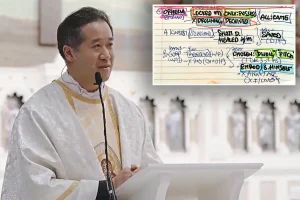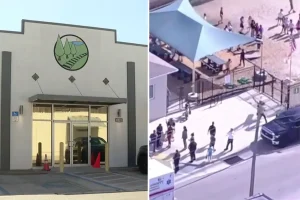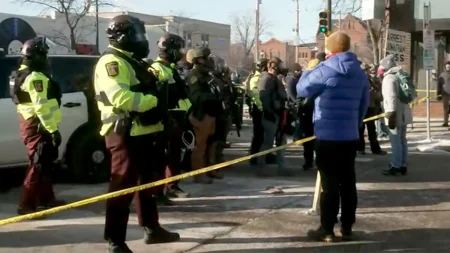Tensions Rise Between Regional Powers After Mysterious Capital Explosions
Unexplained Incidents Spark Diplomatic Concerns Amid Fragile Peace
In a troubling development that has raised eyebrows across the international community, rare explosions have occurred in the capitals of two neighboring nations with a complex history of conflict. While no direct connection between the incidents has yet been established by investigators, diplomatic tensions have quickly escalated, with experts expressing concern that the fragile peace between these regional powers may be at risk. The timing of these events has proven particularly worrisome for international observers, coming just months after a military confrontation between the two countries that drew global attention and prompted urgent calls for de-escalation from world leaders.
The first explosion occurred shortly after midnight local time on Tuesday, according to eyewitnesses who described a “sudden flash of light” followed by a “thunderous boom” that reverberated through residential neighborhoods. Emergency services responded promptly, with authorities cordoning off several blocks surrounding the site as investigators combed through debris for evidence. “We are pursuing all possible leads,” said a senior security official who requested anonymity due to the sensitivity of the ongoing investigation. “At this stage, we cannot confirm or deny foreign involvement, but we are leaving no stone unturned.” The second explosion, which took place approximately 36 hours later in the capital of the neighboring country, exhibited similar characteristics—occurring in a low-traffic area during early morning hours with no immediate claim of responsibility from any known groups. These parallels have fueled speculation about possible coordination, though security analysts caution against drawing premature conclusions without substantial evidence.
Historical Context Amplifies Current Security Concerns
The relationship between these two regional powers has been marred by decades of territorial disputes, ideological differences, and periodic military confrontations. Last year’s border clash, which resulted in dozens of casualties and threatened to escalate into full-scale warfare, represented the most serious military engagement between the nations in nearly three decades. That conflict ended only after intensive diplomatic intervention from major world powers and a carefully negotiated ceasefire that both sides have periodically accused the other of violating. “What makes these explosions particularly concerning is the backdrop against which they’re occurring,” explains Dr. Eleanor Simmonds, director of the Institute for Regional Security Studies. “We’re dealing with two nuclear-capable states with large conventional forces and unresolved grievances. Any incident, especially one that might be perceived as deliberate provocation, carries significant escalation risks.”
The historical animosity between these nations extends beyond their military confrontations, encompassing competing economic interests, religious tensions, and divergent alliances with global powers. These factors have created a complex web of grievances that frequently manifest in diplomatic standoffs, trade restrictions, and propaganda campaigns. Public sentiment in both countries reflects this troubled history, with nationalist rhetoric often surging during periods of heightened tension. “The concern now is that these explosions will become fodder for hardline elements in both governments,” notes Professor Rajiv Mehta, an expert in regional geopolitics. “We’ve seen this pattern before—unexplained incidents quickly become attributed to the traditional adversary, evidence becomes secondary to narrative, and the space for diplomatic resolution narrows considerably.”
Intelligence Communities Scramble as Accusations Fly
Behind the scenes, intelligence agencies from both countries have reportedly mobilized significant resources to determine the origin and nature of the explosions. Sources familiar with these investigations suggest that forensic teams are analyzing explosive residue, reviewing surveillance footage, and interviewing potential witnesses. Concurrently, cybersecurity units are monitoring for unusual digital activities that might indicate coordinated planning or attempted cover-ups. Despite these efforts, public statements from government officials have grown increasingly accusatory, with each side hinting at the other’s culpability while stopping short of direct allegations. “We are aware of certain elements that have historically sought to destabilize our nation through covert means,” declared one defense ministry spokesperson at a hastily arranged press conference yesterday. “While our investigation continues, we remain vigilant against all threats to our sovereignty.”
International intelligence partners have reportedly offered technical assistance to both nations, partly motivated by concerns about regional stability and partly by their own strategic interests in preventing wider conflict. “The challenge in situations like this is distinguishing between genuine intelligence and information that’s being shaped to fit a predetermined narrative,” said a former intelligence director who now consults on international security matters. “Both governments are likely receiving a mix of credible leads and speculative assessments, and how they filter these inputs will significantly influence their response.” Some analysts have suggested that the explosions could potentially be the work of non-state actors seeking to provoke conflict between the two nations, though others point to the sophisticated nature of the incidents as evidence of state involvement. The lack of casualties in both explosions has prompted some to speculate that they may have been intended as warnings rather than direct attacks, though this theory remains contentious among security experts.
Global Powers Urge Restraint As Regional Alliances Complicate Diplomacy
The international response to these developments has been swift but measured, with global powers calling for thorough investigations and diplomatic dialogue. “We strongly urge all parties to exercise maximum restraint and avoid actions or rhetoric that could further inflame tensions,” stated a UN Security Council representative following an emergency consultation session. Major powers with strategic interests in the region have initiated back-channel communications with both governments, attempting to prevent misunderstandings that could trigger military responses. However, these diplomatic efforts are complicated by the complex alliance structures in the region, where major powers often find themselves supporting opposing sides in regional disputes.
Regional security organizations have activated emergency protocols designed to prevent conflict escalation, including increased monitoring of military movements and establishing dedicated communication channels between defense establishments. “The international community has learned from previous crises in this region that early intervention is essential,” explains Dr. Mei Zhang, a specialist in conflict prevention mechanisms. “But the effectiveness of these measures depends heavily on the willingness of both governments to engage constructively and resist domestic pressure for forceful responses.” Economic markets in the region have already shown signs of volatility in response to the situation, with investors concerned about potential disruptions to trade routes and energy infrastructure should tensions continue to rise. Humanitarian organizations have likewise begun reviewing contingency plans, mindful of the devastating impact that armed conflict would have on civilian populations already facing economic challenges and the lingering effects of the global pandemic.
Path Forward Remains Uncertain Amid Calls for Transparent Investigations
As investigations continue into both explosions, the international community remains focused on preventing a potentially catastrophic escalation between these nuclear-armed neighbors. Diplomatic efforts are currently centered on encouraging transparent, possibly joint investigations that might help establish facts before political narratives become entrenched. Several neutral countries have offered to provide independent forensic experts to assist in the investigations, though neither affected government has yet formally accepted such offers. “The next 72 hours will be critical,” notes former ambassador Lucia Fernandez, who previously mediated talks between the two nations. “If cooler heads prevail and technical experts are allowed to do their work without political interference, there’s still a chance to prevent these incidents from triggering a dangerous cycle of retaliation.”
For citizens living near the borders between these nations, the current tension evokes painful memories of previous conflicts that brought economic hardship, displacement, and loss of life. Community leaders from both countries have issued appeals for peace, organizing interfaith services and small-scale demonstrations calling for diplomatic solutions. These grassroots efforts, while encouraging, face an uphill battle against entrenched mistrust and nationalist sentiments that tend to surge during security crises. As the world watches with growing concern, much will depend on whether moderate voices within both governments can maintain influence over security policy decisions in the coming days. The international diplomatic community remains engaged but realistic about the challenges ahead, recognizing that while external pressure can help incentivize restraint, ultimately the path to de-escalation must be embraced by the leadership of both nations. As one senior diplomat observed, “Peace between these countries has always been fragile—built on calculations of mutual interest rather than trust. Our role now is to help rebuild that calculation before emotion or miscalculation leads to actions that cannot be undone.”










